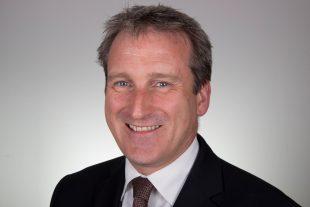Government to fund pay rise for teachers

Teachers are in line for a pay rise of up to £1,366 a year as part of the government’s pay deal for around a million public sector workers.
Today in Parliament, Chief Secretary to the Treasury Elizabeth Truss announced pay awards for some public sector workers. Around one million school teachers, prison officers, members of the armed forces, police, doctors and dentists will see their pay rise between 2% and 3.5%.
Education Secretary Damian Hinds has confirmed an investment of £508 million to fully fund the deal which means the main pay range for classroom teachers will increase by 3.5 per cent.
Where will the money come from?
HM Treasury has stated it will not provide new money to fund the pay increases, meaning that government departments will have to find the cash. We estimate that today’s announcements will cost around £800 million per year extra compared to the 1% increases previously planned for – with the largest cost to the Department for Education and the NHS.
Ms Truss said that the Department for Education would provide £500 million from its central budgets for teachers’ pay. Other departments, she said, had been able to find savings. While there have been suggestions that departmental ‘underspends’ could be used to help fund higher pay, this is at best a temporary solution. Other savings within departments’ squeezed budgets will, at some point, need to be found.
Commenting on school teachers’ pay, IFS Research Fellow Luke Sibieta said:
“Today’s announcement of a 3.5% pay rise for teachers on the main pay range will help with recruitment and retention for teachers early in their career, which has emerged as a serious problem in recent years. However, about 60% of teachers will receive below-inflation awards of 2%, or in the case of school leaders 1.5%.”
Commenting on the announcements on public sector pay today (Tuesday), UNISON assistant general secretary Christina McAnea said:
“Behind the good news headlines, the government is simply robbing Peter to pay Paul. Without extra money from the Treasury to fund these pay increases, services and jobs somewhere will have to be cut.
“Ministers have finally recognised the damage and hardship their ill-thought-out pay policies have inflicted on public services and millions of public servants and their families.
“Everyone working tirelessly to deliver services to the public – in increasingly difficult circumstances thanks to the cuts that just keep on coming – needs and deserves a pay rise.
“But just as it did for the NHS and health workers, the Treasury should have come up with the money to fund all these pay promises.
“Sadly these pay rises won’t be pain free for schools and police forces. Without extra resources, already beleaguered budgets will now have to be raided.”
 David Hughes, Chief Executive of the Association of Colleges, said:
David Hughes, Chief Executive of the Association of Colleges, said:
“Teachers and lecturers across all parts of the education sector do brilliant things, work tirelessly and help transform lives daily. So, I am pleased that the government has largely accepted the recommendations of the School Teachers’ Review Body and removed the 1% cap on pay in schools. I am very worried, however, about what this means for college staff where pay has been lagging for some time. Much more needs to be done to ensure everybody working in education is recognised and rewarded and this must include a renewed focus on colleges.
“The median pay for teachers in colleges is currently £30,000 – £7,000 less than their counterparts in schools. As a result, colleges are struggling to retain and recruit teachers, particularly in science, engineering and maths – areas vital for the successful delivery of the country’s industrial strategy and to ensure economic prosperity.
“We have been working closely with DfE to analyse and assess the funding gap for post-16 education and skills. If we want to deliver a truly world-class academic and technical educational system, we need to properly invest in it. We are confident that the evidence we are gathering with DfE will support a bid into the next spending review for this to become a longer-term reality.
“In the short term, though, the picture is more worrying for colleges. The school teacher pay award is being funded by DfE from its own budgets. We fear this means that, after a decade of austerity, DfE will struggle to offer anything by way of a corresponding college pay grant to support a matched increase for college staff in the next two years. That raises the prospect that college lecturer pay will fall even further behind school teacher pay; it also puts at serious risk the drive for more STEM skills and the implementation of T Levels.”
Responding to recommendations from the independent School Teachers’ Review Body (STRB), Education Secretary Damian Hinds said:
“There are no great schools without great teachers and I want to us to recruit and retain brilliant teachers who are fairly rewarded for the vital work they do.
“Today we are announcing a fully funded pay rise of up to 3.5% – or between £800 and £1,366 – for classroom teachers on the main pay range, 2% for those on the upper pay range and 1.5% for those in leadership positions.
“This will mean that teaching continues to be a competitively rewarded career, and I will continue to work with the profession, Ofsted and the unions on issues like excessive workload, professional development and flexible working, to make sure teaching remains an attractive, fulfilling profession.”
Schools will continue to determine how their staff are paid but the increases above will be funded by government with a new teachers’ pay grant – worth £187 million in 2018/19 and £321 million in 2019/20 from the existing Department for Education budget – paid to all schools on top of their core budgets from the National Funding Formula, which has also been confirmed today.
In cash terms, teachers could receive a boost of between £1,184 and £1,366 to their salary, while salaries for new teachers will increase by between £802 and £1003.
The announcement comes as the government announces the biggest pay rise in almost 10 years for around one million public sector workers across Britain – the result of the government’s balanced approach to the economy, reducing debt while investing in public services.
The average gross pay for a teacher in 2017 was £38,700. The starting salary for a teacher is £22,917 outside of London and £28,660 in inner London. In addition to an annual pay award, many teachers also receive increases from promotions and responsibility allowances.











Responses